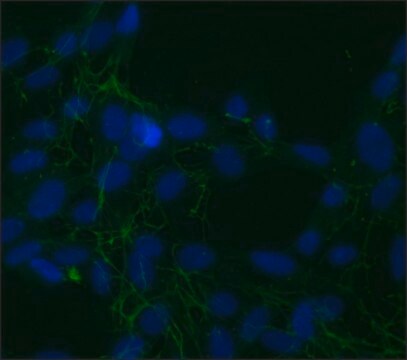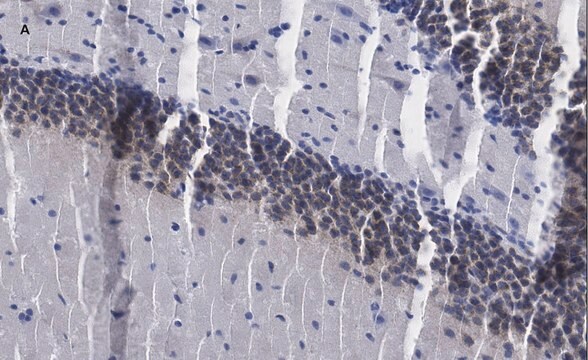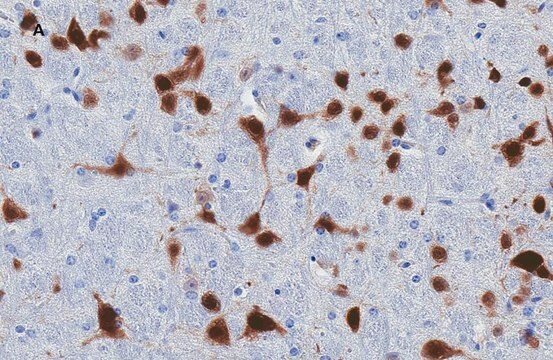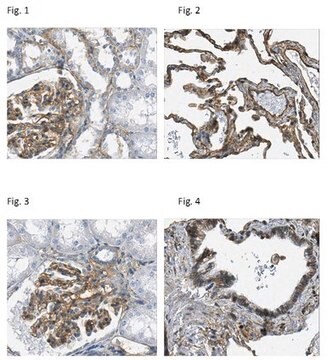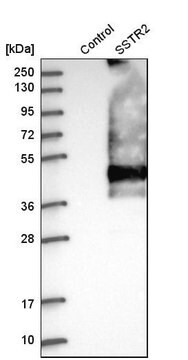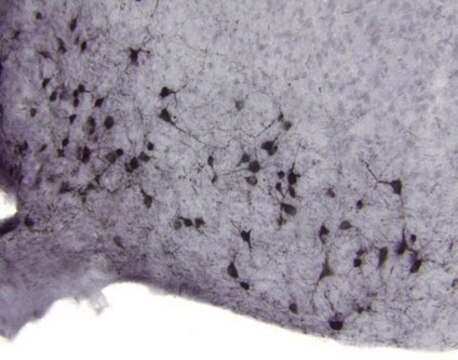SAB4200597
Monoclonal Anti-FMR1 antibody produced in mouse
clone FMR2.5, hybridoma cell culture supernatant
Synonym(s):
FMRP, FRAXA, POF, POF1, fragile X mental retardation 1
About This Item
Recommended Products
biological source
mouse
Quality Level
antibody form
purified immunoglobulin
antibody product type
primary antibodies
clone
FMR2.5, monoclonal
form
buffered aqueous solution
mol wt
~71 kDa
species reactivity
rat, human, mouse, hamster
concentration
~1 mg/mL
technique(s)
flow cytometry: 2.0-5.0 μg/test using HeLa cells
immunoblotting: 1.0-2.0 μg/mL using HepG2 total cell extracts.
immunocytochemistry: suitable
immunofluorescence: 5-10 μg/mL using HepG2 cells.
isotype
IgG1
UniProt accession no.
shipped in
dry ice
storage temp.
−20°C
target post-translational modification
unmodified
Gene Information
human ... FMR1(2332)
mouse ... Fmr1(14265)
rat ... Fmr1(24948)
Related Categories
General description
Specificity
Immunogen
Application
- immunoblotting
- immunocytochemistry
- immunofluorescence
- flow cytometry
Biochem/physiol Actions
Physical form
Storage and Stability
Disclaimer
Not finding the right product?
Try our Product Selector Tool.
recommended
Storage Class Code
10 - Combustible liquids
WGK
nwg
Flash Point(F)
Not applicable
Flash Point(C)
Not applicable
Choose from one of the most recent versions:
Certificates of Analysis (COA)
Don't see the Right Version?
If you require a particular version, you can look up a specific certificate by the Lot or Batch number.
Already Own This Product?
Find documentation for the products that you have recently purchased in the Document Library.
Our team of scientists has experience in all areas of research including Life Science, Material Science, Chemical Synthesis, Chromatography, Analytical and many others.
Contact Technical Service
